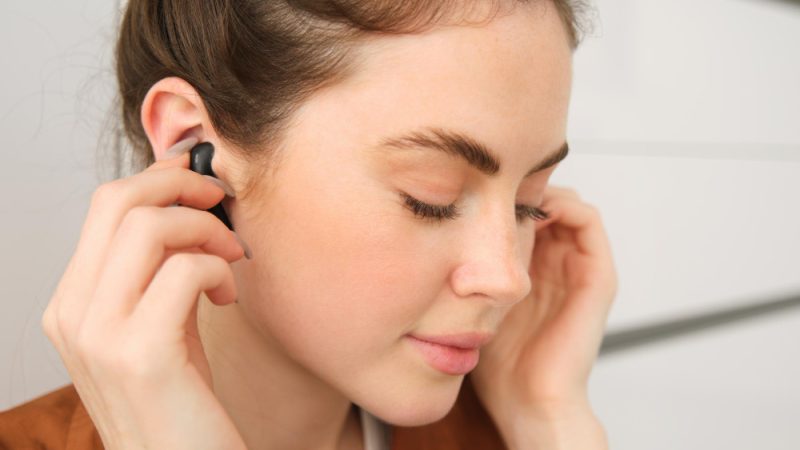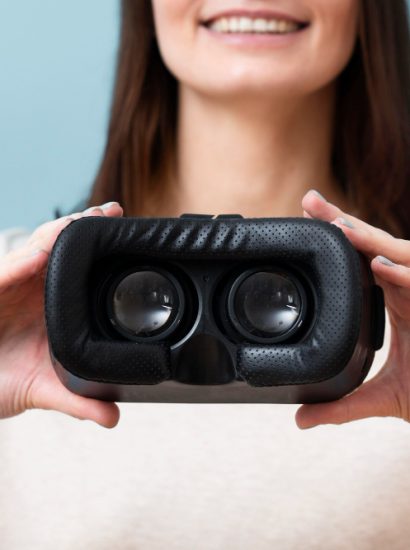Noise is everywhere — traffic, construction, chatter, machinery, or even loud neighbors. For many people, this constant exposure to noise can be more than just annoying; it can cause stress, anxiety, and sensory overload. If you’re someone with noise sensitivity, you know how overwhelming certain sounds can feel.
Fortunately, noise sensitivity ear plugs are designed to help you find peace and balance in noisy environments.
In this comprehensive guide, we’ll explore what noise sensitivity is, how ear plugs work, the best types to choose from, and how they can dramatically improve your quality of life.
Understanding Noise Sensitivity
Noise sensitivity — also known as hyperacusis or misophonia in more severe cases — refers to an increased sensitivity to everyday sounds. While most people can tune out background noise, those with sensitivity experience discomfort or even pain when exposed to moderate or loud sounds.
Common causes include:
- Prolonged noise exposure
- Stress or anxiety disorders
- Hearing damage
- Neurological conditions (like autism or migraines)
For these individuals, even simple noises like typing, chewing, or distant music can be distressing. This is where ear plugs come in as an effective solution.
How Noise Sensitivity Ear Plugs Work
Ear plugs designed for noise sensitivity don’t just block sound — they reduce it to manageable levels. Unlike industrial-grade ear plugs that completely muffle audio, these plugs use acoustic filters to lower the volume of noise without distorting sound quality.
This allows you to:
- Stay aware of your surroundings
- Hear conversations clearly
- Avoid the stress of excessive noise
In short, they help create a balanced sound environment that reduces overstimulation without isolating you completely.
Benefits of Using Ear Plugs for Noise Sensitivity
The benefits go beyond simple noise reduction. Here are the top advantages:
1. Reduced Stress and Anxiety
Constant loud sounds can trigger the body’s stress response. By reducing noise levels, ear plugs calm your nervous system, helping you feel more relaxed and in control.
2. Improved Focus and Productivity
Whether you’re working in an open office or studying in a noisy dorm, ear plugs help you concentrate better by filtering out distractions.
3. Better Sleep Quality
For light sleepers or people living in noisy neighborhoods, ear plugs can block out disturbances like snoring, traffic, or barking dogs — ensuring uninterrupted rest.
4. Hearing Protection
Prolonged exposure to loud noise can cause irreversible hearing damage. Ear plugs prevent this by lowering sound intensity to safe levels.
5. Enhanced Well-Being
By reducing overstimulation, ear plugs can lower irritability, improve mood, and contribute to overall emotional balance.
Types of Ear Plugs for Noise Sensitivity
There isn’t a one-size-fits-all solution. The right ear plugs depend on your lifestyle, preferences, and level of sensitivity.
a. Foam Ear Plugs
- Soft, disposable, and inexpensive
- Excellent for sleeping or travel
- Can block high levels of noise (up to 33 dB)
Best for: Sleepers, travelers, or those needing total quiet.
b. Silicone Ear Plugs
- Moldable to fit your ear shape
- Reusable and water-resistant
- Great for swimming or showering
Best for: Individuals sensitive to specific sound frequencies.
c. High-Fidelity Ear Plugs
- Reduce sound evenly across frequencies
- Preserve clarity of speech and music
- Ideal for musicians or concert-goers
Best for: People who want to reduce noise but still enjoy natural sound.
d. Custom-Molded Ear Plugs
- Made to fit the exact shape of your ear
- Maximum comfort and long-term durability
- Offer superior noise control
Best for: Those with severe sensitivity or frequent use needs.
Choosing the Right Pair of Ear Plugs
Here’s what to consider before buying noise sensitivity ear plugs:
- Noise Reduction Rating (NRR): Choose ear plugs with an NRR between 20–33 dB depending on your environment.
- Comfort: Look for soft materials that won’t irritate your ears during long wear.
- Fit: A secure fit prevents sound leakage.
- Purpose: Do you need them for sleep, work, concerts, or everyday use?
- Reusability: Some plugs are disposable, while others last for months.
Tip: Always test different styles before committing to one brand or material.
How to Use Noise Sensitivity Ear Plugs Correctly
Using ear plugs properly is essential for maximum protection and comfort:
- Clean Your Hands: Prevent ear infections by washing before handling.
- Roll or Mold: Roll foam plugs into a cylinder or mold silicone to fit.
- Insert Gently: Pull your ear upward and outward to insert properly.
- Check Fit: The plug should feel snug but not painful.
- Clean After Use: Wash reusable types with mild soap and water.
Improper use can lead to reduced effectiveness or discomfort.
When to Use Noise Sensitivity Ear Plugs
Ear plugs can be used in many environments to create calm and focus. Common scenarios include:
- Sleeping: To block snoring or street noise
- Workspaces: To minimize distractions in open offices
- Commuting: On buses, trains, or airplanes
- Studying: To stay focused in noisy dorms
- Events: At concerts, festivals, or loud restaurants
- Meditation or Relaxation: To create a peaceful environment
You can even keep a pair in your bag or car for unexpected noise exposure.
Alternatives and Complements to Ear Plugs
While ear plugs are highly effective, combining them with other tools can enhance your noise management:
- Noise-cancelling headphones – Perfect for work or travel
- White noise machines – Mask unpredictable sounds while sleeping
- Soundproof curtains or panels – Reduce outside noise at home
- Mindfulness and relaxation techniques – Lower your stress response
A holistic approach works best for long-term comfort and calm.
Caring for Your Ear Plugs
Proper care extends the life and effectiveness of your ear plugs:
- Store in a clean case to prevent dust buildup
- Replace foam plugs after a few uses
- Wash silicone or custom plugs regularly
- Avoid sharing ear plugs to prevent infections
Well-maintained ear plugs not only perform better but also stay hygienic and comfortable.
How Ear Plugs Help Reduce Stress
Noise sensitivity isn’t just an auditory issue — it’s linked to your body’s stress response. Loud sounds trigger the amygdala, the brain’s fear center, leading to increased heart rate and tension. Over time, this can cause fatigue, irritability, or burnout.
Ear plugs act as a stress buffer, helping you maintain calm in noisy environments. They lower the sensory load on your brain, enabling you to focus on what matters most — peace of mind.
Conclusion
For anyone struggling with noise sensitivity, ear plugs offer more than just silence — they offer relief. Whether you’re trying to sleep better, concentrate at work, or simply enjoy a calmer day, the right pair can transform your environment and improve your well-being.
By choosing comfortable, high-quality ear plugs and using them correctly, you can significantly reduce stress from loud sounds and take back control of your peace and focus.
Investing in your comfort isn’t just about protecting your ears — it’s about protecting your mental health and quality of life.
FAQs
1. Are ear plugs safe for daily use?
Yes. As long as you keep them clean and use them properly, ear plugs are safe for daily use. For reusable types, make sure to wash them regularly to prevent ear infections.
2. Can ear plugs completely block noise?
No ear plug can block 100% of noise. They reduce it to safe, comfortable levels, allowing you to remain aware of your surroundings.
3. Which ear plugs are best for sleeping?
Soft foam or silicone ear plugs are best for sleeping because they’re comfortable and provide strong noise reduction.
4. Are custom ear plugs worth the cost?
If you have high sensitivity or wear them frequently, custom-molded ear plugs are worth the investment for superior fit, comfort, and durability.
5. Can ear plugs help with anxiety caused by noise?
Absolutely. By lowering environmental noise, ear plugs reduce sensory overload and calm the nervous system, which helps manage anxiety and stress.
Also read: YSL Libre Absolu Platine Sample – Try the Luxurious New Eau de Parfum









